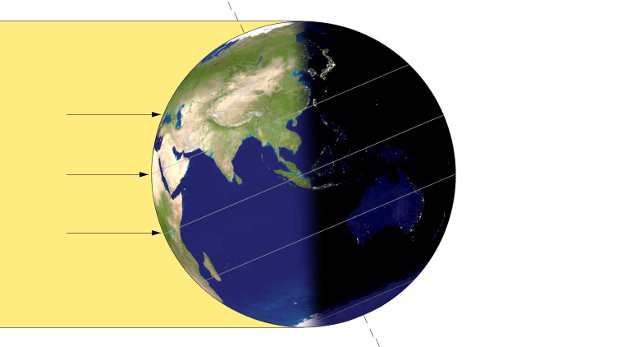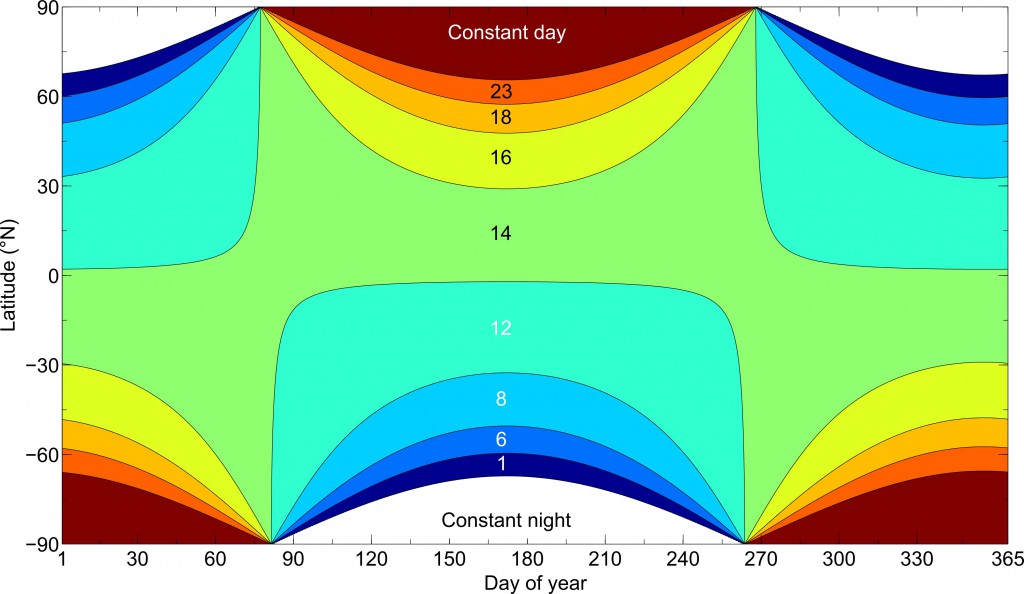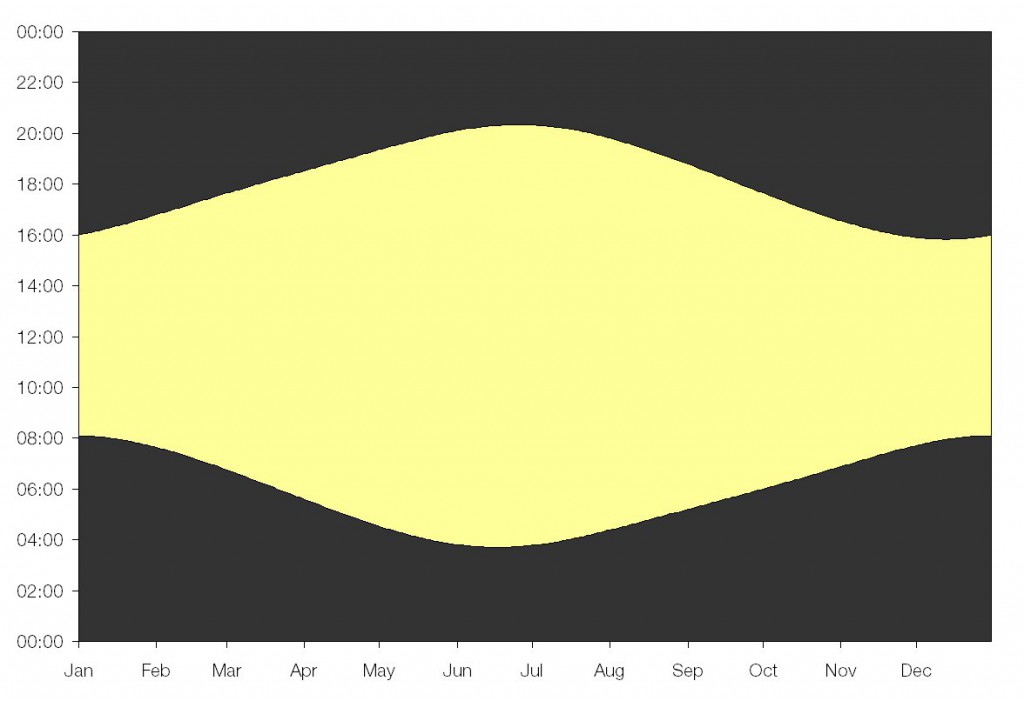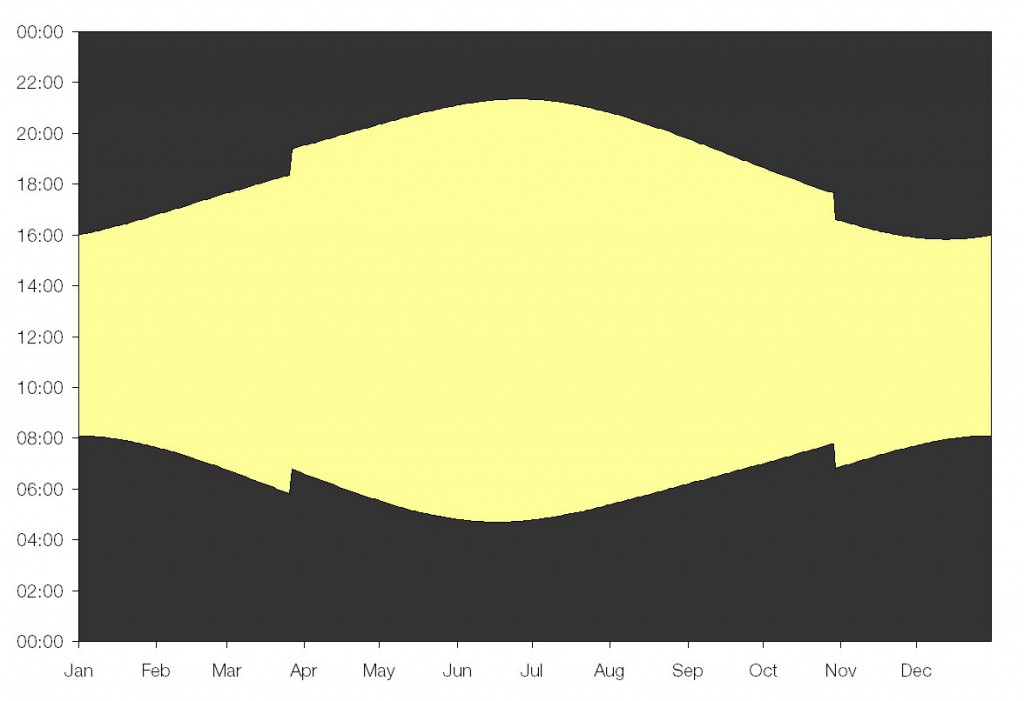Because the Earth is tilted on its axis, the length of the day (i.e. the time between sunrise and sunset) changes throughout the year. During summer in the northern hemisphere the North Pole is tilted towards the Sun and days are longer and warmer, and during winter the North Pole is tilted away from the Sun and the days are shorter and colder.

The change in the length of the day depends on latitude; the further north or south you go, the greater the variation.
For London, in 2011, the length of the day will change as shown below:
When British Summer Time is taken into account the pattern changes:
BST enables us to make better use of the available daylight by shifting hours of sunlight from the morning to the evening; it takes hours of daylight from the morning whilst most people are asleep and “moves” them to the evening when most people are awake. The term used in the US – “daylight saving time” – makes this more obvious.
Having more hours of daylight in the late evening reduces the use of electrical lighting. The environmental campaigners 10:10 (the same group that made that awful video) and others have been pushing for the permanent adoption of BST, with an extra increase of an hour during the summer, a system called Single/Double Summer Time (SDST).
The Royal Society for the Prevention of Accidents has suggested that moving to SDST would reduce accidents, benefit tourism and leisure and help prevent crime. Conservative MP Rebecca Harris has submitted a Private Member’s Bill that is currently before Parliament asking the Secretary of State to consider making this change.



Stop f ing around with the time, daylight saving is madness, these well meaning interfering do gooders don’t mention the negetives. These A holes should be made to pay for the man hours used to change all clocks, timetables and missed appointments. If Joe Public really wanted Day Light Saving we would just get up an hour early or later.